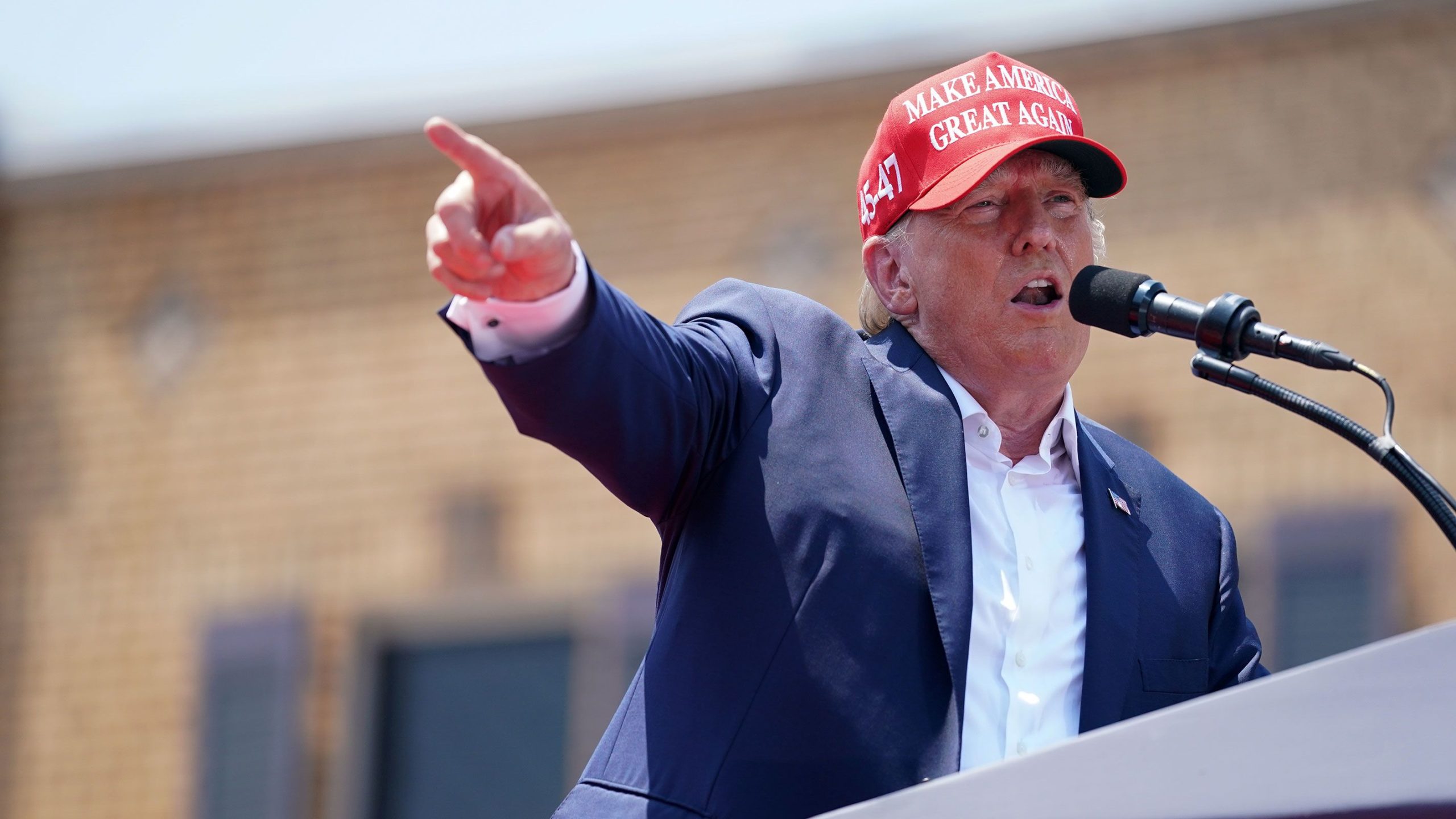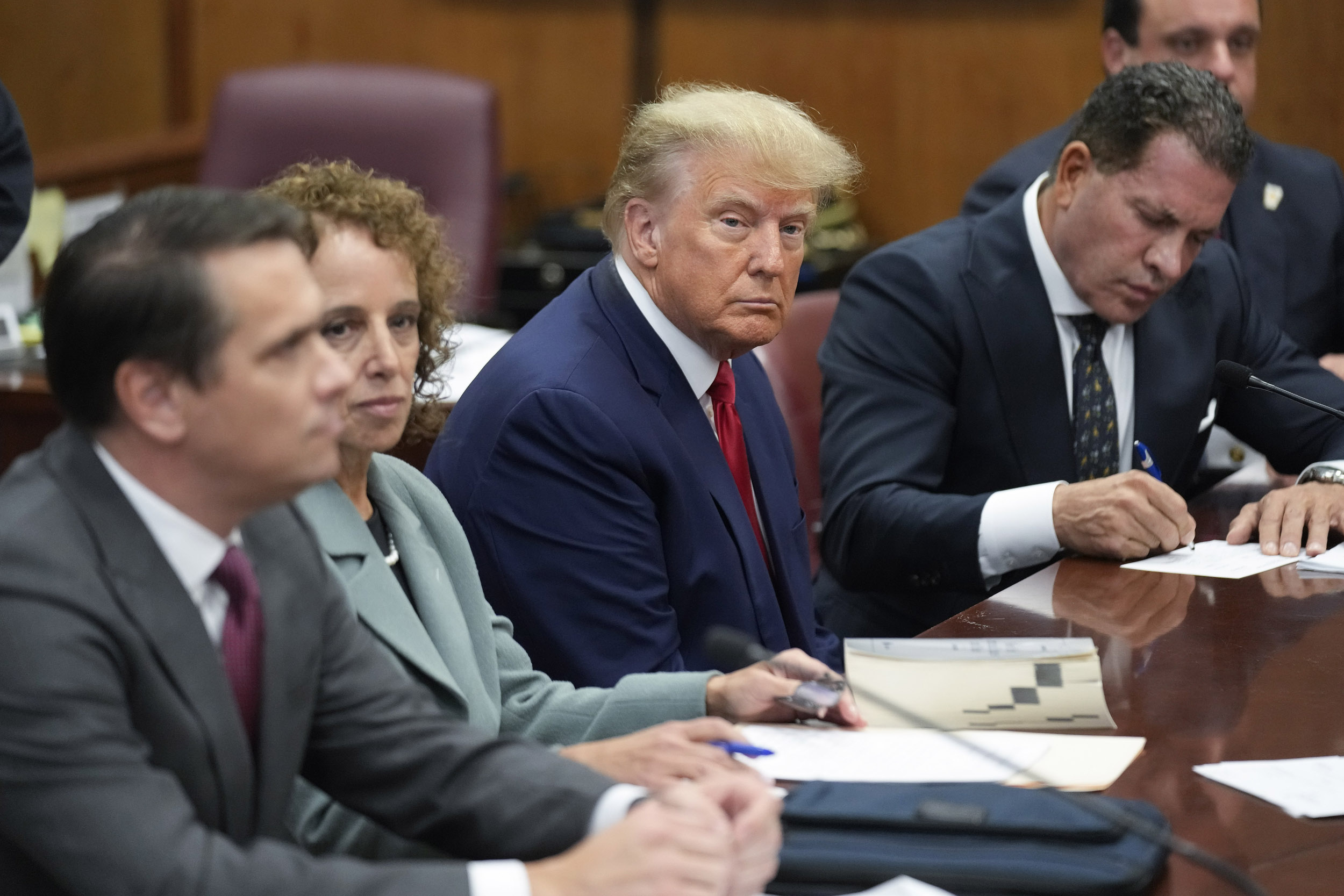In a recent legal development, an appellate court has ruled against the Justice Department’s attempts to block former President Donald Trump from being questioned under oath. This lawsuit was brought forth by two former FBI personnel who claim they were persecuted for political reasons during Trump’s administration.

Former FBI Personnel Secure Court Decision Mandating Trump’s Testimony in Lawsuit: According to Report (Photo: CNN)
Two Former FBI Personnel: Court Upholds Right to Depose Trump
According to the recent report published by RAW STORY, in September 01, 2023, Former FBI personnel secure a significant victory as an appellate court rejects the Justice Department’s plea to prevent Trump’s deposition. This legal battle centers on the handling of text messages between two former FBI personnel, FBI attorney Lisa Page and FBI agent Peter Strzok, which revealed their opposition to Trump’s candidacy and their personal relationship. While the lawsuit primarily targets the Justice Department, it claims that Trump was improperly involved in their treatment, sparking calls for his deposition.
The Justice Department had endeavored to prevent Trump from answering questions about the controversial text messages exchanged between the two former FBI personnel, Page and Strzok. While the duo is suing the Justice Department itself, they argue that Trump was inappropriately involved in influencing how they were treated during the investigation into Russian interference in the 2016 presidential election.
Judge Amy Berman Jackson’s decision earlier this year allowed for a two-hour deposition, citing Trump’s public statements about the two former FBI personnel, Page and Strzok, as justifying further investigation into whether he pressured the Justice Department to retaliate against them.
READ ALSO: Lucky Lottery Ticket Lands Illinois Resident A Windfall Of Over $270,000
Political Divide in the Appeals Panel
In a recent incident report released by The Washington Post, in a divided decision, a three-judge panel denied the Justice Department’s urgent request to halt Judge Berman Jackson’s ruling. Notably, two Democratic-appointed judges voted against the petition, while a Republican appointee on the panel expressed a differing stance, indicating a preference to block the deposition.
Former FBI personnel, Page, who resigned, claims that her privacy was violated when the texts were released, whereas Strzok alleges he was fired in retaliation for protected speech. These events trace back to their involvement in investigating Hillary Clinton’s private email server and Russian interference in Trump’s campaign, with their anti-Trump messages fueling allegations of FBI bias.
As the case unfolds, attorneys for the Justice Department maintain that other officials have testified that their decisions regarding the texts and Strzok’s termination were independent of Trump. However, the plaintiffs argue that some of these officials failed to recall pertinent details and emphasize that Trump personally took credit for their departures from the FBI. This legal battle promises to shed light on the intricacies of political influence within federal agencies and its potential consequences for those working within them.
READ ALSO: Unemployment Benefits Claims Inch Back Down As Companies Hold On To Their Employees Amid The Inflation
























